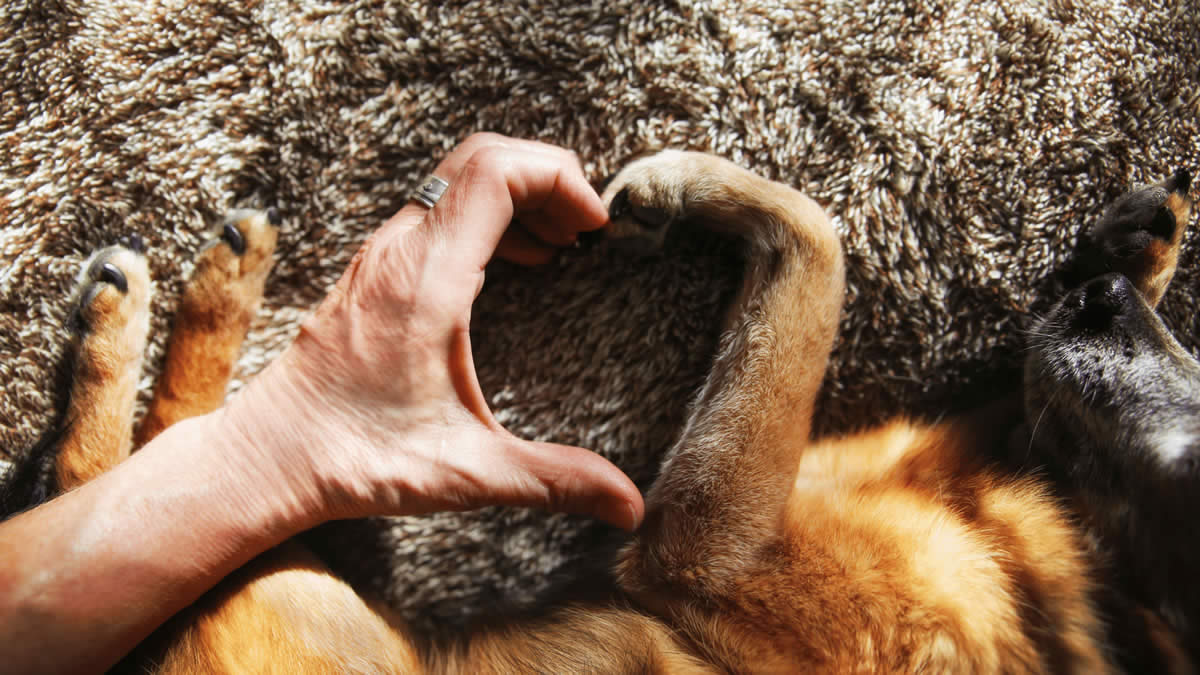


JOINT OWNER AND DOG RELATIONSHIP COUNSELLING TO EASE POST-LOCKDOWN TRANSITION
Our most recent research found that a third (33%) of pet parents are concerned about their dog suffering from post-lockdown anxiety.
Here at Naturo, we know how important our relationships are with our pets, therefore we are launching a unique “hound-selling” service. This is designed to help ease the tricky transition back into post-lockdown life for pet parents concerned about their dogs adjusting to the ‘new normal’ in 2021.
Dubbed ‘Hound-selling’, the unique classes will combine both canine and human therapy practices and specialist content to address pet parent problems from both sides, with a series of solutions-focused group sessions.

We’ve worked with renowned dog behaviourist, and television personality, Leon Towers, alongside psychotherapist Jax Beatty to develop the sessions, based on three key topics to help pet parents connect with their dogs. These are separation anxiety, new relationships and renewed expectations of pet ownership.
Leon and Jax have shared some tips on how all pet owners can strengthen their pet relationships as we ease into a post lockdown life.
Separation anxiety
Separation anxiety for a dog is a very scary and traumatic state of mind and it tends to happen when a new puppy arrives and becomes an immediate loved family member. Separation anxiety tends to evolve from these early stages because as humans we enjoy the company of our new puppy, to the point where puppies follow us around the home and will even sit patiently while you are on the toilet! This is where the problem begins...
Puppies need to develop independence skills. If your puppy follows you around everywhere, when you go to leave the house, this will cause the onset of separation anxiety. This means that they have not been equipped to psychologically cope in your absence therefore behaviours such as crying, scratching, panting, high pitched screeching and rapid heart rate are just several of the tell-tale signs that your dog is stressed.
Tips to help with this…
Be prepared for the arrival of your new puppy, for example, installing a baby gate, which means you can go from room to room without the puppy following you everywhere. Practice this procedure throughout the day, therefore, you leaving the room is not seen as a negative experience. Please bear in mind that dogs can’t tell the time, so doing this in five minute bursts is not necessary. From the minute your puppy arrives, although we want to cuddle them 24/7 (who wouldn’t?), get into the habit of leaving the room several times a day.
Bear in mind when leaving your puppy for several seconds, it is important that you leave the room without the need for a reassuring tone because this can encourage separation anxiety as the tone of your voice can encourage and reinforce unwanted anxious behaviour.
Jax also said…
Many of us have been taken aback by the deepening of love and appreciation we have for our dogs.
It is natural that we may feel we are ‘abandoning and causing emotional distress’ as lockdown comes to an end and perhaps we feel silly to share the sadness and loss we may feel as we return to work, or venture outside the home. Perhaps we can be a little guilty of anthropomorphising our dog’s emotions? The more separation anxiety we feel, the more we will transfer onto the pet: real or imagined.
But we aren’t abandoning them and if we can share our heartfelt feelings with each other along with expert guidance and advice from Leon, we can move forwards and be grateful for what we experienced with our dogs and move forward in this most enriching relationship.
New Relationships
It is so important for new dogs to be carefully introduced to other dogs or family members in a safe and controlled environment. Time and time again we see stressful and chaotic situations evolve from not doing so and can be completely avoided. Unexpected aggression from either dog can erupt without warning and in some cases toward the human. Looking at it from a human point of view, we are bringing a stranger into our family home and just expecting the family unit to accept the stranger without fear or caution. This is no different than bringing a new dog into the home and just expecting your current dog to accept it with no question. Dogs only react in a negative manner, when we have set our dogs up to fail due to our lack of understanding.
Tips to help with this…
Never force a new baby and dog bond because by doing so you are opening up a whole new list of problems. Dogs and babies tend to bond once the baby is crawling or walking and this will happen naturally.
When introducing a new dog to a family with existing dogs, take them to a local park and allow them to be introduced on neutral territory. Go for a short walk together and where available enter the house via the garden and immediately unclip the leads. Should the dogs not get on, then it's important to repeat this procedure until they do. Please remember the new arrival can be viewed as a threat or an intruder.
Jax also said…
Our dogs offer us unconditional love, they are easy to love, they offer us a safe listening ear. So, we must remember when looking for love in the dating world, we cannot expect such ‘perfect love’ from another human being. In fact, our new partner may never have had a strong connection with a dog and may fail to identify with the intensity of our feelings.
Therefore, the cosy idyll of having our heavenly pooch in our bed, may not be welcomed or tolerated. So, it’s about having and respecting our boundaries of what’s acceptable with our dog in our house, as they may be a different set of rules.
Renewed expectations of pet ownership
As humans we constantly talk about how naughty our dog has been or that they won’t listen. However, it’s important to know that dogs do not hold emotions such as spite or revenge. Infact, dogs have the mental age of a 3 year old child and this remains throughout their lives, regardless of how old they actually are. Whilst dogs fully mature hormonally at 18months old, there is no mental differentiation between a puppy and an “adult” dog - therefore, this is why we should be more tolerant of dogs, whatever age they are as they still have the same needs as a puppy for their entire life.
Giving a dog “time out” to cool down or putting them in another room away from human contact is not productive due to the fact that they have no understanding of this human form of punishment. At least we can sit and reason with a child as we can communicate to them what they have done. We as humans don’t have the ability to explain a situation and communicate the information back to a dog. Also, just like toddlers, without any boundaries, consistency or routines, your dog will undoubtedly go off the rails and their behaviour will show as such.
Tips to help with this…
Just like children, dogs need routine. We should have set meal times, walks and playtime and where possible, have a dog toy box and bring it out mid morning, tipping it all on the floor and letting them go crazy for an hour. After they have played, then tidy it all away and place it back in a cupboard, then repeat again mid afternoon. This not only creates structure to your dogs daily routine, but it also creates a happy relaxed environment for you all as a family unit. It’s important to be consistent…Once you have a set routine it is important to stick to it! Lastly, have boundaries in place, be firm but fair and don’t ever shout at your dog, because just like a toddler, it scares them and will not help with their training!
The Relationship Hound-selling sessions are being offered free of charge via a competition on our website and are available to all UK and Ireland dog owners.